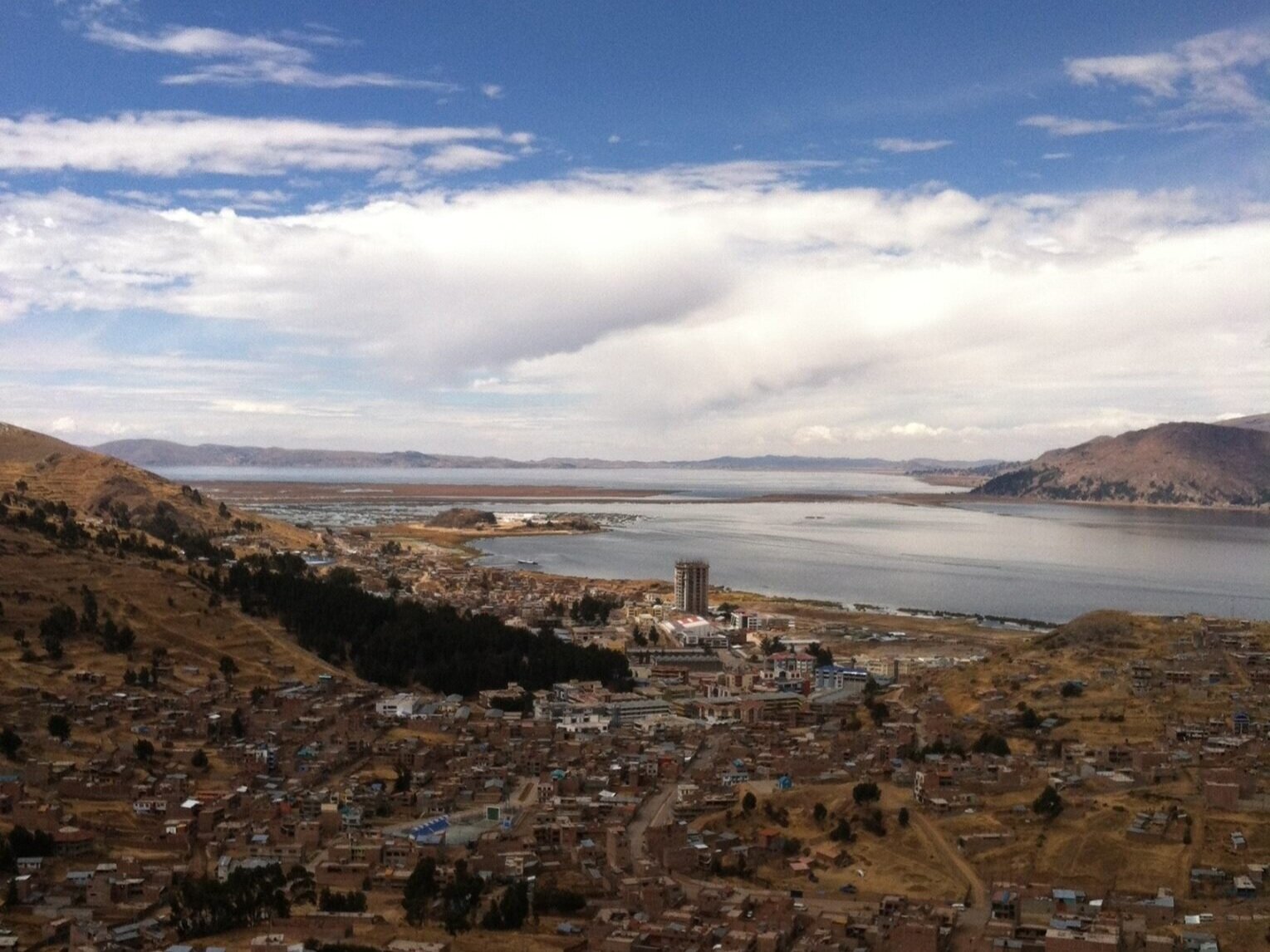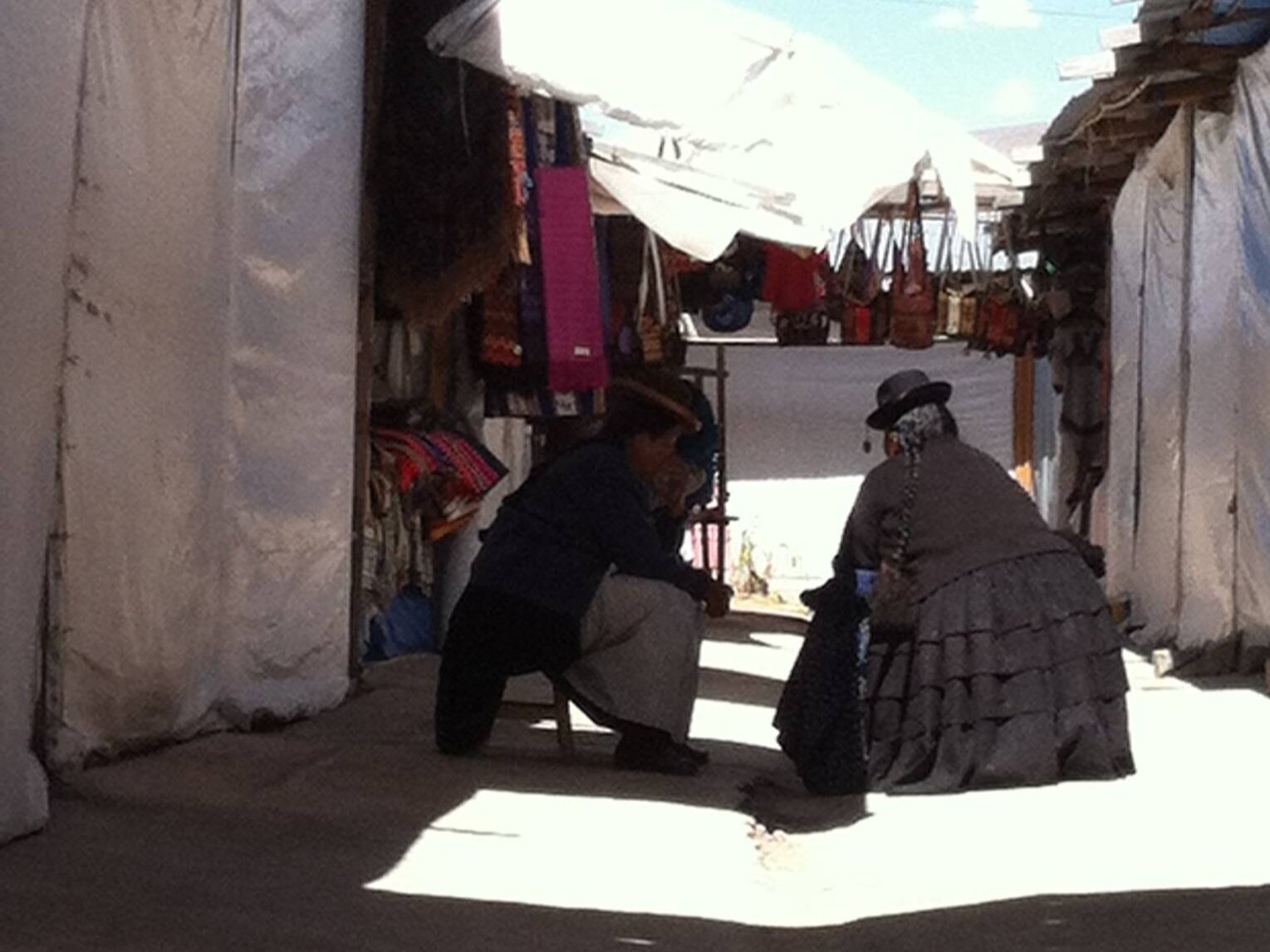About Viewing the Andes
While the Andean region is still too often represented in essentialist and exotic ways in videos and photographs targeting the tourism and volunteering industries – and, unfortunately in films targeting global audiences as well – the filmmaking scenes in Bolivia and Peru are flourishing, film networks flow dynamically across borders, and audiovisual initiatives supporting social justice are in continuous development. Viewing the Andes from Bolivia and Peru is an experience that comes from a rich history of film, video-making and photography in the region, and the diversity, availability and visibility of perspectives, knowledges, and experiences is constantly expanding. Social justice takes on a variety of forms and, in many ways, it takes shape through audiovisual projects in the Andes.
With all its diversity, the Andes is innovation and tradition. It is empowerment and cultural change. It is decolonization and sovereignty. Above all, what defines the Andes are the people who navigate its spaces - urban, rural and all the movement in between - , with their hopes, their dreams, their work, their families, their communities, their daily lives, and systemic battles. Just like anywhere else in the world, while still maintaining their local, regional, and perpetually evolving characteristics.
Our mission at Viewing the Andes LLC is to collaborate with Andean filmmakers, researchers, and nonprofits on the creation of materials adapted to the different stages and requirements of film and audiovisual projects that advocate for the social change the Andeans want to see, and the stories they want the rest of the world to know.
The Story Behind the Initiative
A decade of work in the Andes, from Urubamba to La Paz
A decade of travels to the Andes for academic and nonprofit work have led me to meet a number of filmmakers, nonprofit workers, and researchers, and to learn more about the processes and objectives of Andean filmmaking and audiovisual projects, particularly in Bolivia and Peru. I had just completed the first year of my PhD in Hispanic Studies when I first traveled to the Andes. This trip led me to the house above, situated in Urubamba, Peru, which served as the central office and living quarters for staff, interns and volunteers of the nonprofit Nexos Voluntarios that operated in the Sacred Valley. In Urubamba, I was assigned to work with the members of a cooperative of crafts makers who wished to learn English to be able to negotiate with tourists. During my time off, I traveled to Puno and Taquile Island for research I was conducting on the ways the Peruvian tourism industry represented the Andeans in their audiovisual promotional material. This was the first of several trips, during which I met both filmmakers and individuals who used audiovisual projects to support the objectives of communities and also nonprofits.
Scriptwriting at the Escuela Andina de Cinematografía in La Paz
In 2017, I traveled to La Paz, where I signed up for a scriptwriting workshop at the Escuela Andina de Cinematografía - a collaboration between the Fundación Grupo Ukamau and the Cinemateca Boliviana -, shortly after the opening of the school. By day, I took classes to complete an intensive introductory course to aymara, and by night I went to the film school. During those weeks, I met established filmmakers, and learned with and worked alongside others that were up and coming and aspiring to work in filmmaking. We learned about writing the narrative and visual scripts for a short film, before putting the knowledge learned into practice. It is during those weeks that I met a few of the artists with whom I still work today, and that ignited the idea for Viewing the Andes LLC.
Researching and writing about Andean films and audiovisual initiatives was interesting, but working alongside people and communities in Peru, and eventually Bolivia, is what has motivated me since that first trip to Urubamba. As a result of various conversations, and the more time went by, I became convinced that research had to be one tool among many others that would serve the collaborative effort of film and other audiovisual projects in the Andes, rather than an end in itself and for my own career advancement. That’s when Viewing the Andes LLC was founded. My hope is that the result of these collaborations will both contribute to social justice efforts in the Andes while also serving to spark a desire in the global audiences of the films and audiovisual projects to learn to view the Andes as an amalgamation of complex and ever evolving spaces, projects, and peoples.
Professional and Personal Background
Marie-Eve Monette
So far, my professional path has led me to study and work in Bolivia, Canada, England, Guatemala, Morocco, Peru, Spain and the United States; to complete a Ph.D. in Hispanic Studies at McGill University in Montreal, Canada (also where I am from), in 2015; and to work as an Assistant Professor of Spanish, with a specialization in Latin American Cinema, at the University of Alabama, Tuscaloosa, until May 2019. I am now the owner and manager of Viewing the Andes LLC, and aim to continue working with Andean colleagues, old and new, for a long time still.
I grew up and lived in urban areas for most of my life. But I come from the Montreal region in Canada where I am minutes away from vast expanses of nature, which is also very much a part of my life. I am French-Canadian, which means that I am both a descendant of colonizers and colonized peoples. While this does not permit any comparison between my experiences and those of others, the in-between nature of my identity - living between the city and the mountain, between a history of colonization and being colonized - has allowed me to develop a strong capacity to listen, and a never-ending desire to create bridges between people, and their stories.





